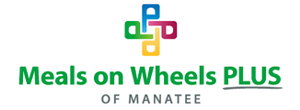A will is a document where you can state what you would like to happen to your property, assets, and belongings when you die. However, you may be surprised to learn that 2 out of 3 Americans don’t have a will, according to a survey from Caring. com. Here are more details on what a will is and why you need one.
What Is a Will?
A will is a legal document where you can state what you would like to happen to your property, assets, belongings, and care for any minor children should you die.
Why Should I Have a Will?
The biggest reason to have a will is to help your loved ones avoid the legal headaches that arise without a will. The court system will have to follow standard rules regarding who can make decisions about your property or care for minor children, and their choices may not reflect what you wish. Additionally, your relatives will spend extra time, money, and energy to handle your affairs if you don’t have a will.
Can I Make a Will Myself?
Yes. However, you should consider what would be included in your will before going this route. If you have an average amount of assets and standard plans for how you want to leave your property, then a DIY will may suffice, according to LegalZoom.com, a company that makes templates for DIY legal documents. However, if you have specific or unique plans for how you want things cared for, it is likely better to hire an attorney. Some lawyers argue against the idea of a DIY will because of potential complexities you may not realize.
If you choose to write your will yourself, make sure to include:
- How you want your property divided
- Who should handle the task of property division
- Who should care for any minor children
Make sure to follow your state’s requirements for a valid will. There are online will templates, but it’s crucial to make sure that any will you have follows your state rules—and that others know where to find your will if needed. If you move to another state, you may have to update your will.
What Happens to My Things If I Don’t Have a Will?
Intestate is the term for dying without a will. Although laws may vary by state, in many states (including Florida), there are laws that decide how your belongings and property will be dispersed when you die. For instance, this could mean splitting your assets among a surviving spouse, parents, children, brothers and sisters, and other relatives. If no relatives are identified, then your estate may go fully to the state.
When you die without a will, a process called probate begins, and the state will select a person to distribute your assets. This may be a spouse or other family member. If no one is available or up to the task, the courts will name someone to handle your estate. During this process (called probate), no one can touch your assets.
With the large number of adults who do not have a will, you may not be surprised to learn that even famous celebrities have died without a will, including singers Aretha Franklin and Prince. As you can imagine, this led to some testy, costly court battles.
Creating a will may not be a fun task, but it can avoid some real headaches and heartaches for your loved ones.
Call Secure Aging to Find Out How We Can Help Seniors With Estate Planning Management
At Secure Aging in Bradenton, we transform the weight of the world into a sigh of relief for our senior clients and their concerned family members. The mission of Secure Aging is to protect and preserve our client’s independence and dignity through careful and thoughtful financial and care management. As our clients age, it is their desire to remain independent and age with dignity. Our services protect our clients from talented con artists looking to exploit and deplete the financial resources of our vulnerable seniors. Secure Aging helps families in Manatee County and Sarasota County and in and around the communities of Anna Maria, Bradenton, Bradenton Beach, Ellenton, Holmes Beach, Lakewood Ranch, Longboat Key, Myakka City, Palmetto, Parrish, and Sarasota. Call us at 941-761-9338, or visit us online at www.secureaging.com.




















